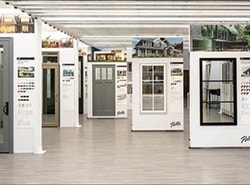Create Stunning Designs with Floor-to-Ceiling Windows
Discover how these windows add architectural interest and natural light.
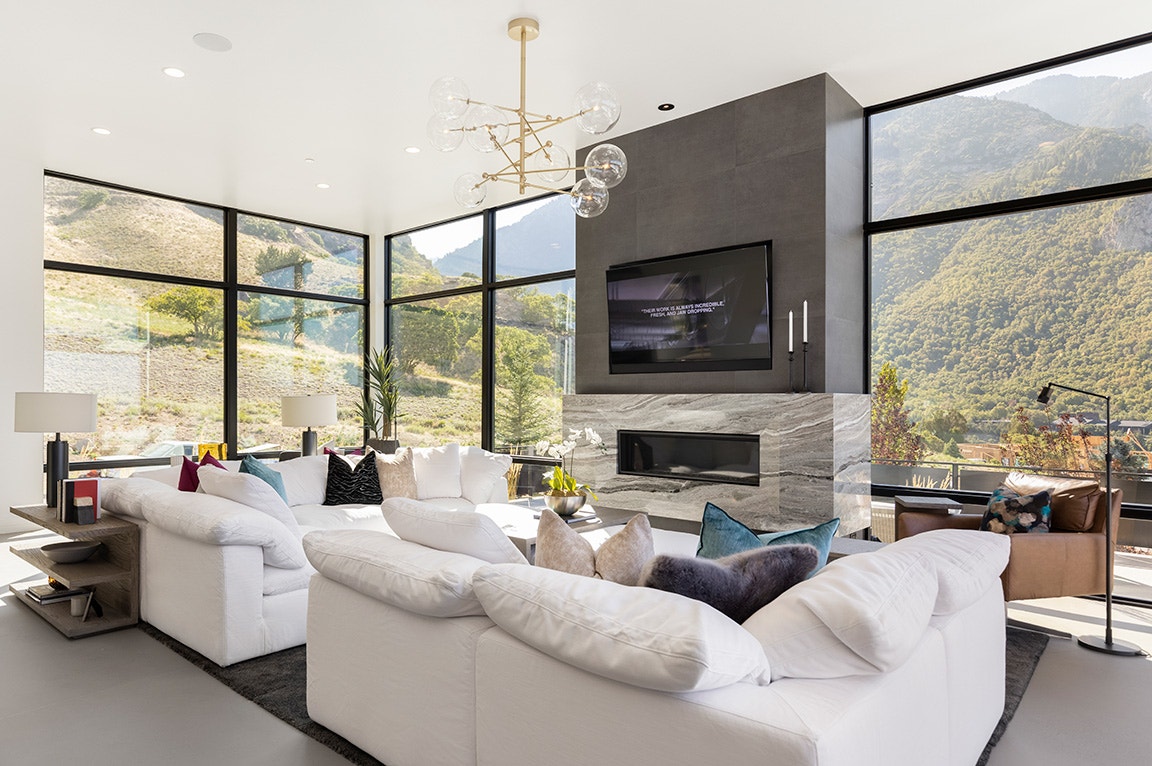
Beautiful floor-to-ceiling windows blur the lines between indoors and out and allow for an abundance of natural light. With both operable and non-operable window options, this window design creates architectural interest for nearly any room in your home.
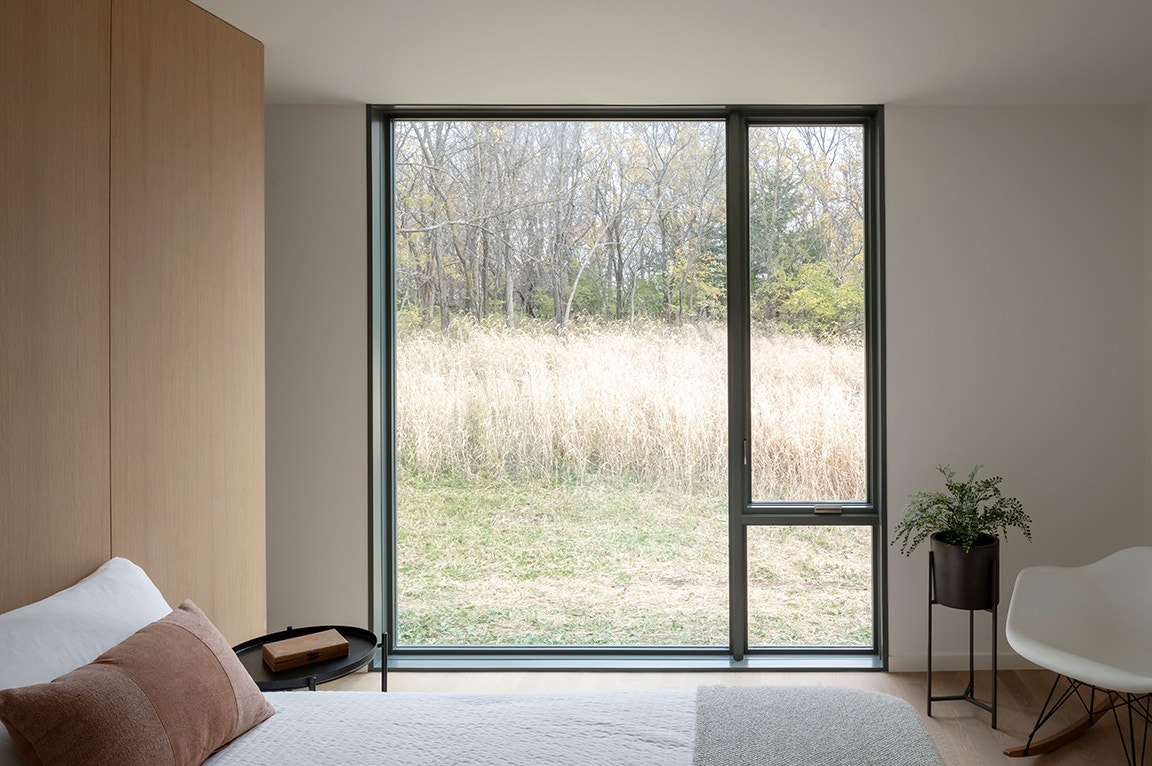
What are Floor-to-Ceiling Windows?
Floor-to-ceiling windows, commonly referred to as a wall of windows, are made up of a combination of large windows that give the appearance of a glass wall. Typically, dramatic installations combine picture and awning windows. Depending on your design goals, home style and desired sightlines, other types of windows can be used in these combinations, such as double-hung or casement windows.
These expansive glass features seamlessly blend indoor and outdoor spaces, allowing in sunlight and, with operable windows, a fresh breeze. Because they require special structural considerations, full-height window systems are typically only seen in new construction homes.
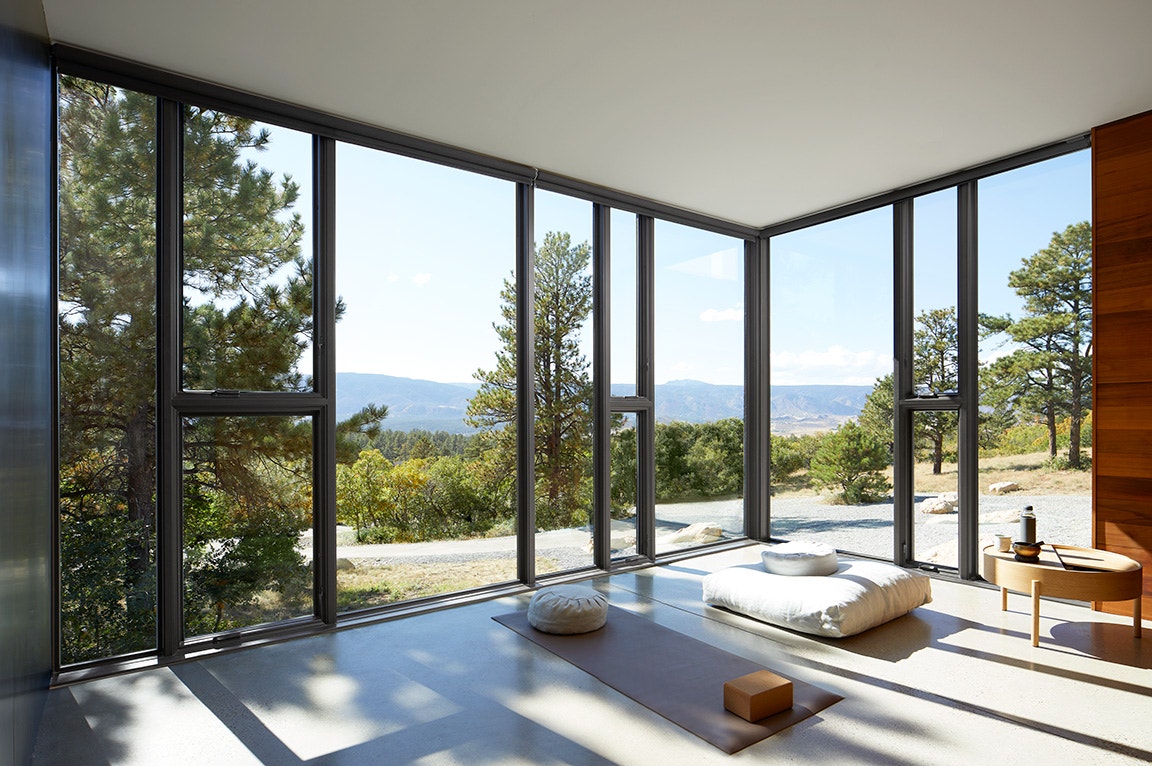
Benefits of Floor-to-Ceiling Windows
A wall of windows not only serves as an architectural masterpiece but also provides homeowners with functional benefits. Discover the advantages of floor-to-ceiling windows below.
- Enhanced natural light: For a bright and welcoming space, floor-to-ceiling windows allow in streams of natural light. The expansive glass panels create unobstructed views for homeowners while also capturing the sun’s rays as it moves throughout the day.
- Improved curb appeal: Window walls mark grandeur and elegance. Their floor-to-ceiling design creates a sleek, contemporary look that makes a lasting impression.
- Unlimited combinations: Consider pairing an operable awning window with a casement window above to create a beautiful, large window wall. For windows that are in a place that is easier to reach, single-hung and double-hung windows are a great option. Stack several single- and double-hung windows together for a breathtaking floor-to-ceiling window combination.
- Seamless connection to the outdoors: Minimal sightlines paired with large amounts of glass create a wall that is virtually invisible, helping make a room feel larger. A wall of glass also helps create a welcoming environment, ideal for indoor and outdoor living.
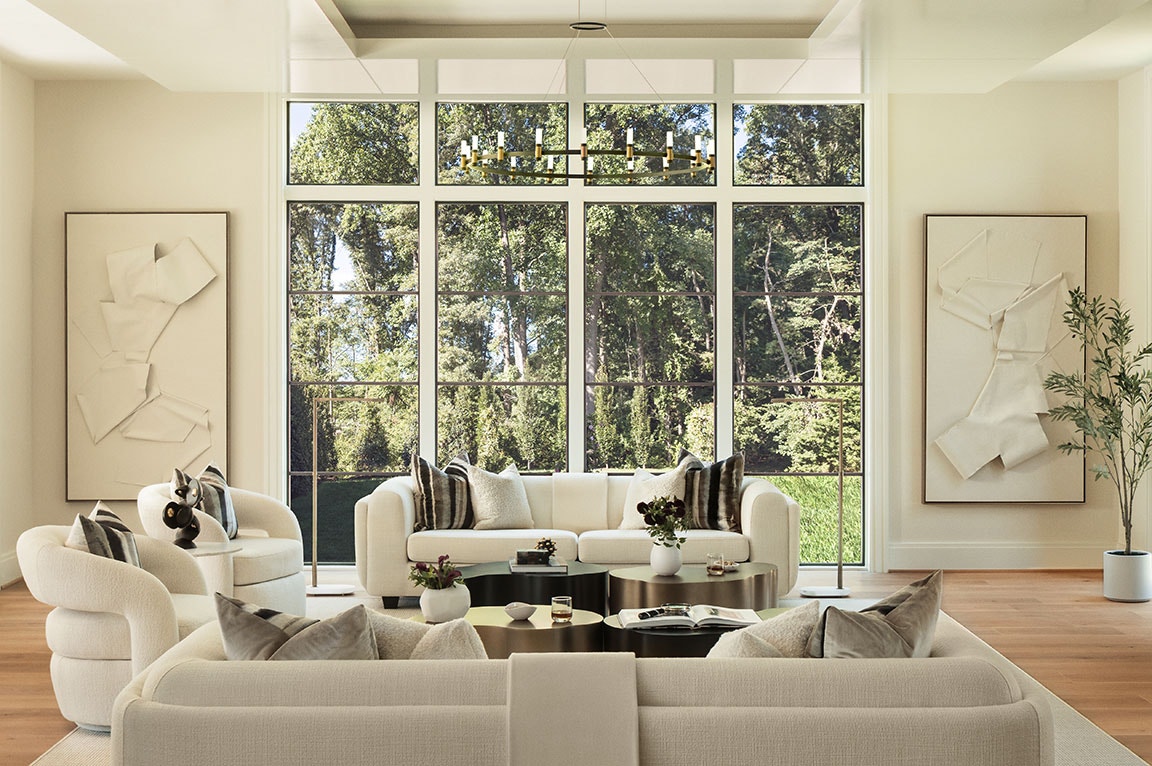
Ideal Spaces for Window Walls
Expansive glass walls add a focal point to any room in your home. Whether you’re looking to add more light to your space or connect with nature, these glass installations may be the perfect fit. Explore the three best rooms for this window design below.
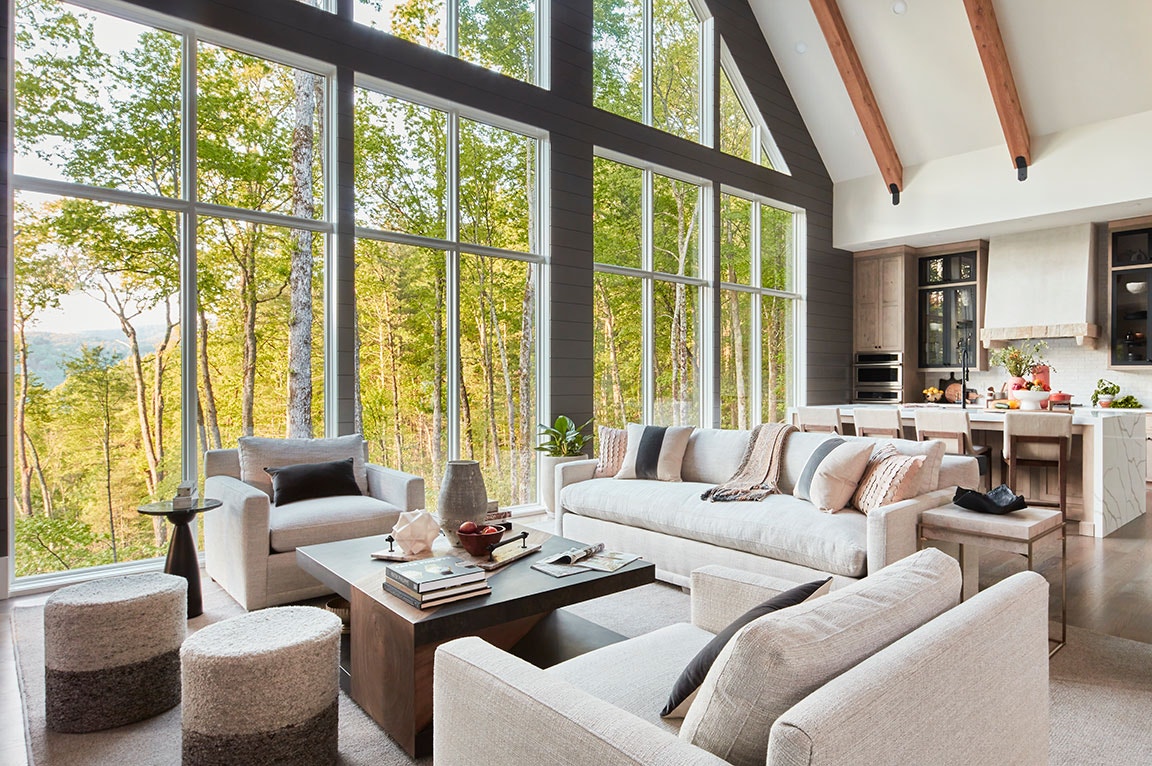
Living Room
Living rooms are common gathering spaces, and incorporating wall-sized glass helps blur the line between indoors and out. This window design creates a bright, open, and relaxing atmosphere for everyone to enjoy.
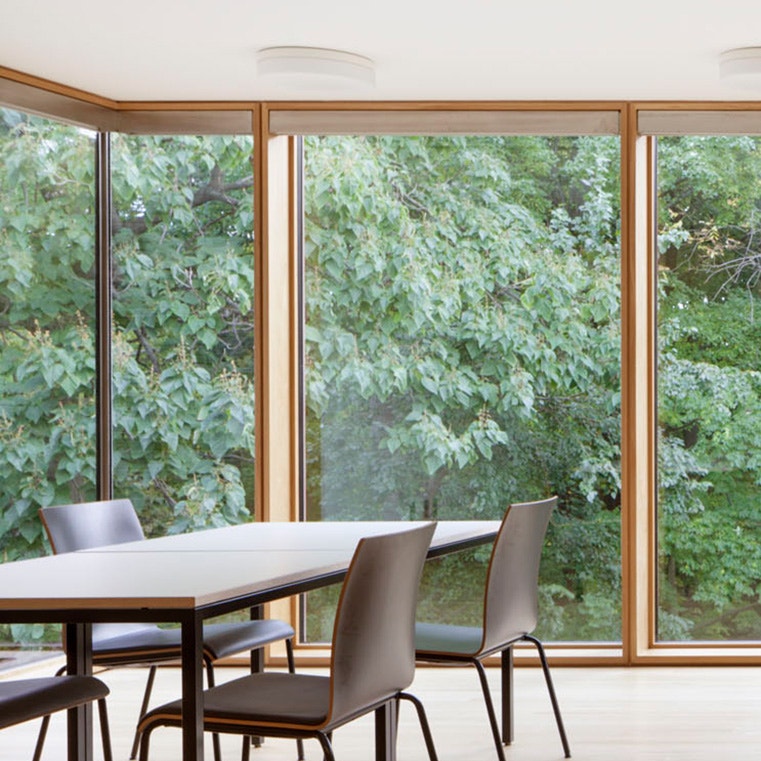
Dining Room
Dramatic floor-to-ceiling windows add design interest in dining rooms. The large amounts of glass allow in more light and can help make rooms feel larger. Families can enjoy meals together and quality time in their airy and bright dining rooms.
Staircases
Glass walls featured near staircases maximize natural light while connecting interior and exterior spaces. Stairwells are often dark, that’s why homeowners may opt to add floor-to-ceiling windows which create a brighter, more inviting space.
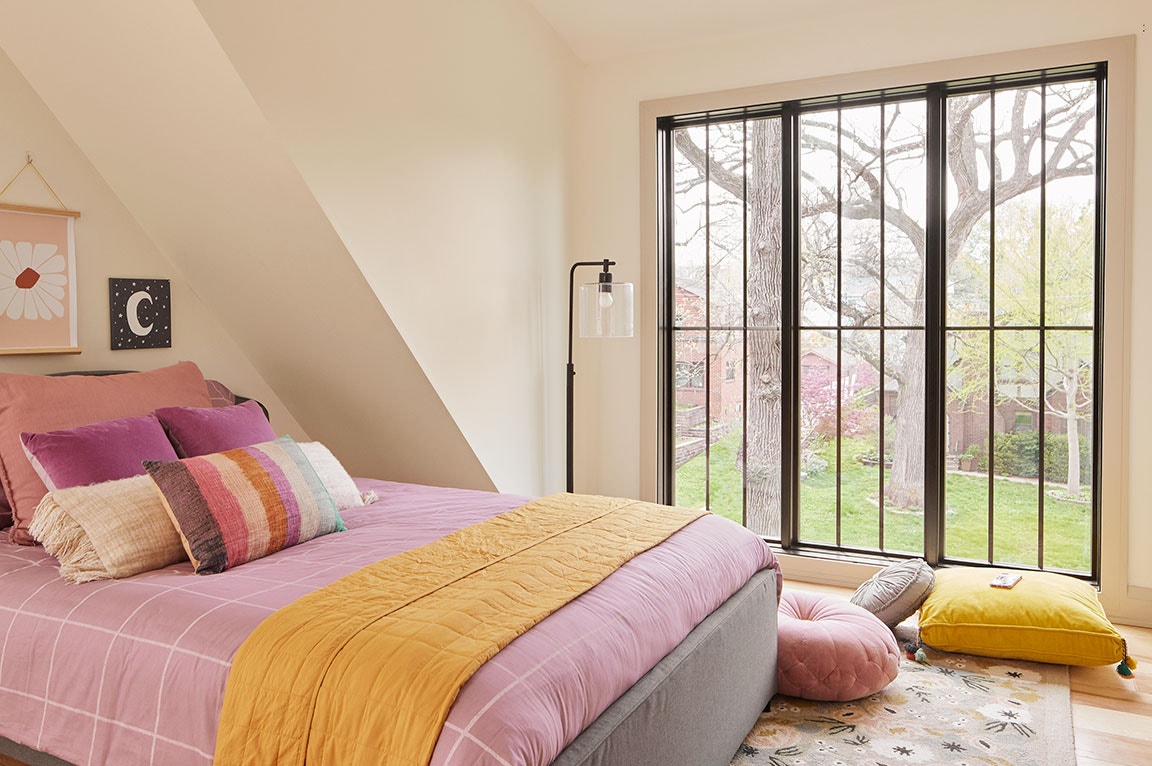
Bedrooms
In bedrooms, floor-to-ceiling windows promote wellness. The natural light and panoramic views can create a calm and serene environment, perfect for relaxation. Plus, expansive windows reduce the need for artificial lighting, keeping the bedroom bright all day.
Operable Options for Wall-Sized Glass
While floor-to-ceiling windows are commonly created with fixed, or non-operable windows, you can create unique designs with operable windows. Consider pairing an operable awning window with a casement window above to create a beautiful, large window wall. For windows that are in a place that is easier to reach, single-hung and double-hung windows are a great option. Stack several single- and double-hung windows together for a floor-to-ceiling window combination.
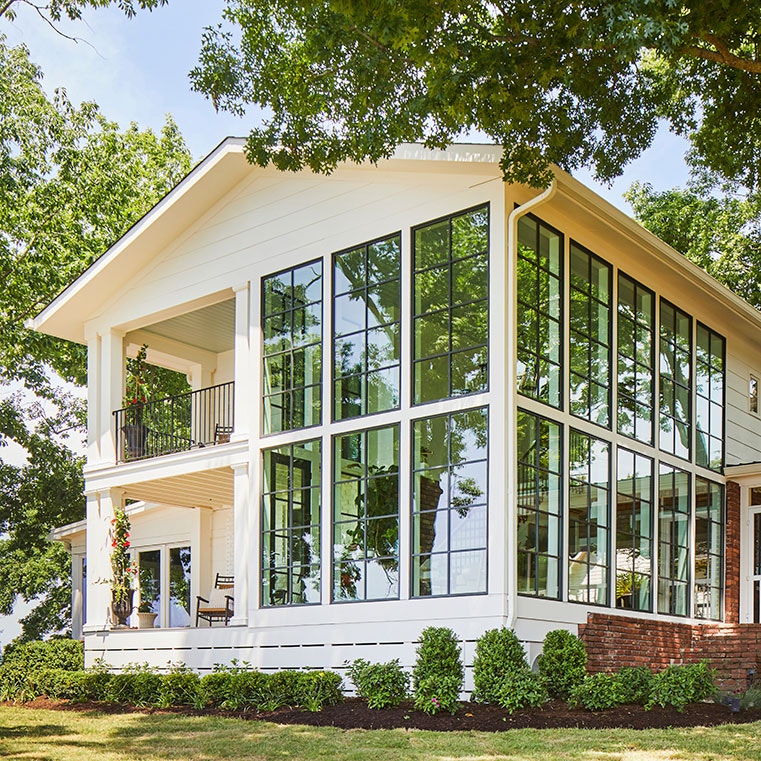
Architectural Styles Enhanced by Expansive Windows
Adding architectural glass walls to your home will enhance design and character. These walls of windows have the ability to complement any style of home, from modern to traditional and everything in between.
Traditional & Historical Homes | Floor-to-ceiling windows are used in traditional and historical homes to enhance exterior facades. These home styles typically use a combination of windows to create large window configurations. Window walls provide great height and elegance to any space. Victorian homes incorporate transom windows for their decorative detailing. For a traditional and historic home, homeowners may consider using beautiful wood windows. Made with historic detailing and architect-inspired hardware, these traditional windows will be an ideal addition. |
Modern Homes | Full height glass elements are the perfect addition to any modern home. Using the same design principles as this home style, window walls use crisp, clean lines and narrow sightlines to maximize natural light. Non-operable, picture windows are the perfect window type to complement the modern home aesthetic. For a polished look, consider using Pella Impervia® windows in your floor-to-ceiling combination. They’re made from our proprietary fiberglass material which delivers unmatched strength and lasting durability for sleek, timeless style.9 Pella Impervia picture windows are available in sizes up to 143-½” width or height, with a maximum of 70 square feet. |
Energy Efficiency of Glass Wall Installations
Performance is key for walls of windows. If energy options are not selected properly, these windows can allow for thermal transfer to take place, potentially making rooms feel very warm and uncomfortable for homeowners. That’s why installing floor-to-ceiling windows that are excellent at maintaining energy efficiency is very important. For superior energy savings, homeowners select triple-pane windows which offer maximum insulation and enhanced durability. Optional triple-pane glass and foam insulation, available on select products, help to further increase your floor-to-ceiling windows’ energy efficiency. In fact, certain Pella Reserve windows have been certified by Passive House Institute, US (PHIUS) for use in a passive home. A passive house is incredibly efficient and comfortable and uses only small amounts of energy for heating and cooling. Dual pane windows are the best choice to balance cost and performance for excellent energy efficiency.
Material Types for Window Walls
Our window installations are available in three energy-efficient materials including wood, fiberglass and vinyl. Each material has its own set of unique benefits that help keep your home comfortable, all year round.
Wood Windows | Wood windows can be tailored to fit your home’s unique style. As the most customizable material for windows, wood windows can complement any space with their specialty colors and finishes. |
Fiberglass Windows | Fiberglass windows are made from our proprietary fiberglass material and are incredibly energy efficient. They’re available with optional triple-pane glass and foam insulation, and feature products that will meet or exceed ENREGY STAR® guidelines in all 50 states.1 With fiberglass floor-to-ceiling windows, you can get outstanding resistance to water, wind and outside noises all while increasing energy efficiency, security and ease of operation. |
Vinyl Windows | Vinyl windows are created from our exclusive vinyl formula. Multi-chambered frames feature pockets of air that help slow the transfer of heat, keeping your home more comfortable. These vinyl frames are a cost-friendly choice that deliver great strength and durability. |
Floor-to-ceiling windows flood your home with natural light and create a striking architectural feature. They’re available in a variety of styles and can be made from your choice of three materials. This eye-catching design works as a bold statement piece in any home—whether traditional, modern or somewhere in between—and will boost your home’s curb appeal.
